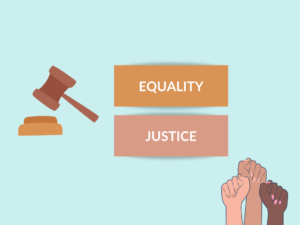Democracy vs. Liberalism: Understanding the Differences
Democracy and liberalism are two concepts that often intertwine but have distinct characteristics. This article aims to shed light on the differences between democracy and liberalism, exploring their definitions, examples, uses, and more.
What is Democracy?
Democracy can be defined as a system of government where power rests with the people. It allows citizens to participate in decision-making processes, either directly or through elected representatives. The core principles of democracy include political equality, majority rule, and protection of individual rights.
Examples of Democracy:
- United States of America
- United Kingdom
- India
- Australia
Uses of Democracy:
- Ensures representation of diverse perspectives
- Fosters political stability
- Protects individual freedoms and rights
What is Liberalism?
Liberalism refers to a political and moral philosophy that emphasizes individual liberty, equality, and limited government intervention. It values the protection of individual rights, including freedom of speech, religion, and thought. Liberalism seeks to maximize individual freedom while promoting social progress and equality.
Examples of Liberalism:
- John Locke – An influential figure in classical liberalism
- Barack Obama – Advocated for liberal policies during his presidency
- Democratic Party (USA) – Aligned with liberal ideology
Uses of Liberalism:
- Promotes social justice and equality
- Encourages economic freedom and competition
- Protects individual rights and civil liberties
Differences between Democracy and Liberalism:
| Difference Area | Democracy | Liberalism |
|---|---|---|
| Role of Government | Focuses on governance by the people through elected officials or direct participation | Emphasizes limited government intervention to protect individual liberties |
| Scope of Individual Rights | Ensures political and civil rights for the individual | Advocates for broader individual rights, including economic and social aspects |
| Primary Focus | Concerned with political power and representation | Emphasizes individual freedom and equality |
| Origins | Originated in ancient Athens and evolved over centuries | Developed in the 17th and 18th centuries as a response to monarchy |
| Decision-Making Process | Depends on voting and majority rule | Relies on individual autonomy and rationality |
| Political philosophy | Focuses on the processes and structures of governance | Concerned with individual liberties and justice |
| Economic Beliefs | No specific economic model associated with democracy | Supports free markets and fair competition |
| Government Accountability | Accountability lies with elected officials and democratic institutions | Accountability rests with the rule of law and protection of individual rights |
| Approach to Change | Change occurs through voting and peaceful transitions of power | Open to progressive reforms to address social inequities and promote equality |
| Emphasis on Equality | Equal political and voting rights for all individuals | Advocates for broader social, economic, and gender equality |
Conclusion:
To summarize, democracy and liberalism are distinct but interconnected concepts. Democracy primarily focuses on political power and representation, while liberalism emphasizes individual freedom and equality across various aspects of life. While both ideologies have their unique characteristics, they share common goals of promoting individual rights, participation, and social progress.
People Also Ask:
- What is the difference between democracy and liberalism?
- How do democracy and liberalism promote individual rights?
- Which countries practice democracy and liberalism?
- Can democracy exist without liberalism?
- How does liberalism impact economic beliefs?
Democracy refers to a system of government where power rests with the people, while liberalism is a political and moral philosophy that emphasizes individual liberty and limited government intervention.
Democracy ensures political and civil rights for individuals, while liberalism advocates for broader individual rights, encompassing social, economic, and political aspects.
Countries like the United States, United Kingdom, India, and Australia practice democracy. Liberal principles are prominent in various countries, with liberal political parties like the Democratic Party (USA) advocating for liberal policies.
Democracy can exist without liberalism, as it primarily focuses on the political structure and power distribution. However, liberalism often complements democratic systems by ensuring individual freedoms and protection of rights.
Liberalism supports free markets and fair competition, promoting economic freedom and minimizing government intervention in economic affairs.


